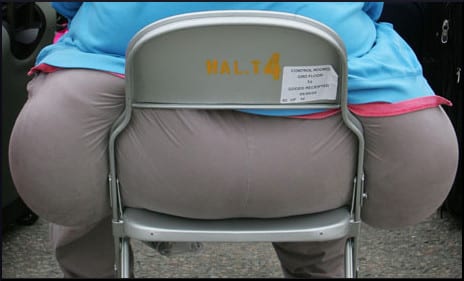 Dr. Pretlow has mentioned the costliness of bariatric surgery, which is quite a significant drawback.
Dr. Pretlow has mentioned the costliness of bariatric surgery, which is quite a significant drawback.
In Britain, the National Health Service offers two varieties—the gastric band and the gastric bypass. The band option is simpler and less expensive. It is said that as many as two million people, or more than 5% of the adult population, could be eligible for weight-loss surgery because their condition is potentially life-threatening. In reality, only 8,000 people undergo bariatric surgery each year, which amounts to less than 1% of those who technically could be eligible under the guidelines.
In some quarters this is seen as regrettable, because as Tam Fry of the National Obesity Forum says, the surgery “pays for itself in two to three years,” presumably by reducing the number of doctor visits that the patients need to schedule for obesity-related reasons. (Other research puts that number at more like four years. Sadly, an insurance company is only interested in seeing a practically instantaneous return. Anything over 18 months, forget it.)
Some administrators feel that the under-utilization of the surgical option might result from the candidates’ inability to “make the lifestyle improvements required before having surgery.” How much more successful would their pre-surgery lifestyle improvement programs be if they all had smartphones with the W8Loss2Go app installed?
Access to Bariatric Surgery Limited in Wales
In neighboring Wales, journalist Graham Henry found a frightening trend. Funding is scarce, so the bar to admission is extremely high.
Present restrictions require patients to have a BMI higher than 50—and to suffer from other related health problems such as high blood pressure, diabetes or cardiovascular disease.
Wales can only afford bariatric surgery for 0.1% of the patients who qualify for the procedure. That’s one/tenth of a percent, so even a patient in desperate need is unable to find a place on the surgical schedule. But here is where the real sickness comes in. Because acceptance is extremely limited, the determination of some patients is twisted into a perverse effort to gain even more weight in order to qualify. They have to aspire to join the worst of the worst, to make themselves part of the most urgently threatened group. To win this lottery, some already morbidly obese Welsh people actively try to increase their Body Mass Index.
Losing Weight for Surgery in America
Meanwhile, across the ocean in Iowa, Charity Pierce (purportedly the world’s fattest woman at the time) was trying to lose 280 pounds in order to qualify for bariatric surgery. Ms. Pierce weighed 765 pounds at the time, and had been on earth for 38 years. A time came when she resolved to get down to a weight that might allow her to live through surgery. Once that was accomplished, she planned to eventually reach a svelte 200 pounds.
It would not be easy. This was a woman whose life experience—dysfunctional family, alcoholism, controlling father—checked several trauma boxes. Because of an accidental injury, Pierce had been confined to home since 2001. An uncredited story gives a sample of her multiple complications:
After having a 40-pound fleshy lump removed from her side in 2005 due to flesh-eating bacteria, she developed lymphedema in the back of her hip, an area that wasn’t affected before. She still has open wounds on her side that haven’t healed…The build-up of fluid in her left leg has left her virtually immobile and unable to care for herself.
This is also was someone accustomed to consuming 10,000 calories per diem. Pierce’s diet consisted of pizza, cereal, sandwiches, pastries, lasagna, doughnuts, popcorn, and chocolate. What turned her around? A marriage proposal from her 22-year-old fiancé. Meeting him changed everything, and was all the motivation she needed. She is quoted as saying:
Tony has given me hope for the first time in years and I’ll do whatever it takes to turn my life around.
Your responses and feedback are welcome!
Source: “Eating Addiction: There’s an App for That,” HuffingtonPost.com, 09/11/15
Source: “Weight loss surgery: Up to two million could benefit,” BBC.co.uk, 01/17/14
Source: “Obese are forced to get fatter to qualify for vital surgery, health experts warn,” Walesonline.co, 02/04/14
Source: “Now That’s Motivation: Iowa Woman Hopes to Drop 565 Pounds to Marry Man of Her Dreams,” ElementsBehavioralHealth.com, 10/31/14
Image by Peter Stevens

 FAQs and Media Requests:
FAQs and Media Requests: 











